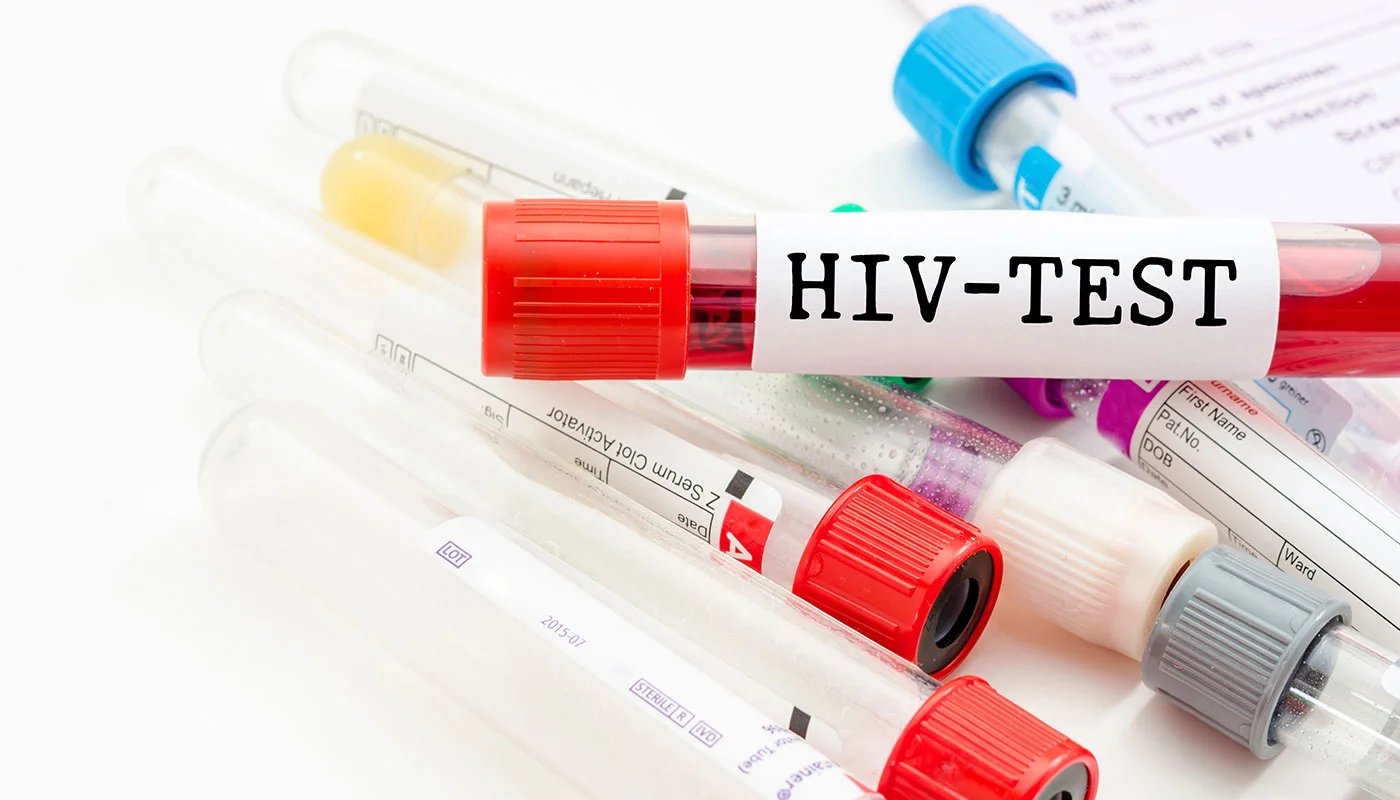
At-Home Fertility Test for Men – A Complete Guide
Table of Contents Having your semen tested at home is the best way to know whether you’re fertile. With at-home testing, you can check how

Did you know that more than 38 million people are living with HIV worldwide, and about 1.7 million of them are in the Middle East and North Africa region? HIV is a virus that attacks the immune system and can lead to AIDS, a life-threatening condition. HIV can be transmitted through sexual contact, sharing needles, blood transfusions, or from mother to child during pregnancy, birth, or breastfeeding.
In this blog post, we will explain the different options and procedures for HIV test in Dubai. We will also discuss the benefits and advantages of HIV testing, the types and methods of HIV testing, and some tips and recommendations for HIV testing. By the end of this post, you will have a better understanding of how to get tested for HIV in Dubai and why it is essential for your health and well-being.
Getting tested for HIV is the only way to know your HIV status. Knowing your status can help you make informed decisions about your health and prevent transmitting the virus to others. Some of the reasons why you should get tested for HIV are:
HIV testing has many benefits and advantages for you and your loved ones. Here are some of them:
If you test positive for HIV, you can start antiretroviral therapy (ART) as soon as possible. ART is a combination of medicines that can suppress the virus and prevent it from damaging your immune system. ART can also reduce the risk of transmitting HIV to others.
If you test negative for HIV, you can take steps to prevent getting infected, such as using condoms, avoiding sharing needles or taking a daily pill that can lower your chances of getting HIV.
You can also get vaccinated against other diseases that can be more severe if you have HIV, such as hepatitis B, hepatitis C, or human papillomavirus (HPV).
If you test positive or negative for HIV, you can get emotional and psychological support from trained counselors who can help you cope with your feelings, answer your questions, and provide you with information and referrals.
You can also join support groups or networks of people living with or affected by HIV who can share their experiences and offer you guidance and encouragement.

There are different types and methods of HIV testing available in Dubai, depending on your preference, convenience, and budget. Here are some of them:
Blood tests are the most common and accurate way to detect antibodies or antigens for HIV in your blood. Antibodies are proteins that your body produces to fight off infections. Antigens are parts of the virus that trigger an immune response. Blood tests can be done in a lab or at home using a finger prick or a vein draw. There are different types of blood tests for HIV, such as:
Oral tests are another way to detect antibodies for HIV in your saliva. Oral tests are easy and painless to use. You just need to swab your gums with a device and place it in a solution. The result will show up within 20 minutes.
Lab tests are advanced tests that use technology to detect genetic material or HIV viral load in your blood. Genetic material is the DNA or RNA of the virus that carries its genetic information. Viral load is the amount of virus in your blood. Lab tests can be more sensitive and specific than other tests. They can also measure how well your treatment is working or if you have drug resistance. There are different types of lab tests for HIV, such as:
HIV testing is a personal and important decision that you should make based on your situation and needs. However, there are some general tips and recommendations that you should follow to ensure a safe and positive experience. Here are some of them:
The World Health Organization (WHO) recommends that everyone between the ages of 15 and 64 get tested for HIV at least once as part of their routine health care. If you have multiple sexual partners, inject drugs, or have other risk factors, you should get tested more often, such as every 3 to 6 months.
If you are planning to have sex with a new partner, you should both get tested for HIV before engaging in any sexual activity. This way, you can know your status and take precautions to prevent infection.
If you have had unprotected sex or a condom breakage with a partner whose status is unknown or positive, you should get tested for HIV as soon as possible after the exposure. You may also consider taking post-exposure prophylaxis (PEP), a course of medicines that can reduce your risk of getting HIV if taken within 72 hours of exposure.
If you are in a monogamous relationship, you should get tested for HIV with your partner at the same time. This way, you can share your results and discuss your options and plans. You can also decide whether to use condoms or other prevention methods, such as PrEP or treatment as prevention (TasP), which means taking ART to lower your viral load and reduce your risk of transmitting HIV to others.
If you are concerned about your privacy or stigma, you should get tested for HIV confidentially. Your name and personal information will not be linked to your test result or shared with anyone without your consent.
You can get confidential testing from Aims Healthcare, which offers home healthcare in Dubai. You can also get anonymous testing from clinics or organizations that do not require your name or identification.

Aims Healthcare is a leading provider of at-home laboratory services in Dubai. We offer convenient and accurate HIV test at home in Dubai for you and your loved ones. You can get tested for HIV safely and confidentially with Aims Healthcare by following these steps:
Aims Healthcare is committed to helping you and your loved ones get a quality diagnosis 24×7, 365 days a year in the Dubai region. We respect your privacy and confidentiality and ensure your personal information and test results are always protected.
HIV testing is a vital step to know your status and protect yourself and others from infection. In this blog post, we have explained the different options and procedures for HIV testing in Dubai, the benefits and advantages of HIV testing, the types and methods, and some tips and recommendations for HIV testing. We hope this post has helped you understand how to get tested for HIV in Dubai and why it is essential for your health and well-being.
We encourage you to get tested for HIV as soon as possible if you have any risk factors or symptoms. Remember, getting tested for HIV is not only good for you but also good for your loved ones and your community. It is a way to show that you care about yourself and others. It is also a way to fight against the stigma and discrimination that people living with HIV face every day.
So don’t wait any longer. Get tested for HIV today and take charge of your health and happiness.
A negative test result means no HIV antibodies or antigens were detected, while a positive test result means they were detected and need a confirmatory test.
The five principles of HIV testing are consent, confidentiality, counseling, correct results, and connection.
The C line is the control line that appears first on most HIV rapid tests to indicate that the test worked properly.
HIV 0.1 is the index value or signal-to-cutoff ratio of an HIV antibody test. It means the test result is negative, and there are no HIV antibodies in the blood sample.
A CD4 count is a blood test that measures the number of CD4 cells, a type of white blood cell that helps fight infections in a person’s blood. It can indicate how well a person’s immune system is working and how HIV is affecting it.

Table of Contents Having your semen tested at home is the best way to know whether you’re fertile. With at-home testing, you can check how

Table of Contents Healthy Fasting, Happy Digestion! Explore Tips for a Smooth Ramadan. As the holy month approaches, fasting holds significant spiritual and cultural importance

Table of Contents Healthy Fasting, Happy Digestion! Explore Tips for a Smooth Ramadan. As the holy month approaches, fasting holds significant spiritual and cultural importance